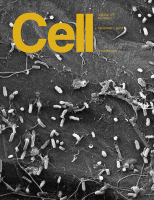FEATURED PUBLICATIONS

Biermann, Melms, et al., 2022

Kumar, Gurrapu, et al., 2024

Rogava, et al., 2024
Dissecting metastatic organotropism associated with distinct clinical outcomes
While the genetic landscape of primary and metastatic cancers is now well understood, it remains unclear how early genetic events determine invasive capacity and metastasis of various cancers, including melanoma. It is also unknown why some tumors have a preference to metastasize to one organ over another. To delineate these fundamental questions, we apply single-cell genomics and imaging to defined genetic models of human and murine cancer precursors in tissue-engineered and pre-clinical in vivo models. Among metastatic niches, we are particularly interested in the brain and liver metastases, which are associated with lower drug response rates and major causes for morbidity and mortality across cancers. The lab is currently funded through NIH grants (R37CA258829; R01CA280414) and the Pershing Square Sohn Foundation to study these mechanisms


Frangieh, Melms, et al., 2021
Jerby-Arnon et al., 2018

Ho, Melms, Rogava, et al., 2023

Luthria et al., 2024 (Cover image)
Delineating resistance to immune checkpoint inhibitors in patient models.
Immune checkpoint inhibitors (ICI) are exciting therapies that produce potentially durable responses in a portion of cancer patients, however, the vast majority of patients do not respond. We have previously identified a set of genes that are associated with drug resistance. We now use multi-scale genome-editing and single-cell genomics in patient-derived tumor/immune models to functionally to characterize putative drivers of resistance. This work is supported by NIH grants (R01CA266446) and foundation funding (Burroughs Wellcome Fund Career Award for Medical Scientists, Melanoma Research Alliance Young Investigator Award)



Tirosh, Izar et al., 2016
Melms et al., 2021

Izar, Tirosh, Stover et al., 2020

Wang, Fan et al., 2023
Dissecting tumor heterogeneity with single-cell genomics
Single-cell genomics, including multi-modal single-cell sequencing and spatial transcriptomics, are powerful tools to dissecting tumor heterogeneity, cellular interactions and biomarkers of drug response/resistance. In the lab, we have contributed to the evolution of these methods, both experimentally and analytically, and continue to strive to enable their implementation in clinically relevant contexts and model systems. Among others, we identified pre-existing, transcriptionally defined cells that confer resistance to oncogene-directed therapy, applied these methods to clinical specimens from COVID-19 patients, and most recently enabled their application to a variety of archival patient specimens. These methods are integral to questions asked in the lab. This work is supported by NIH/NCI grant U54CA274506 (Project 2).